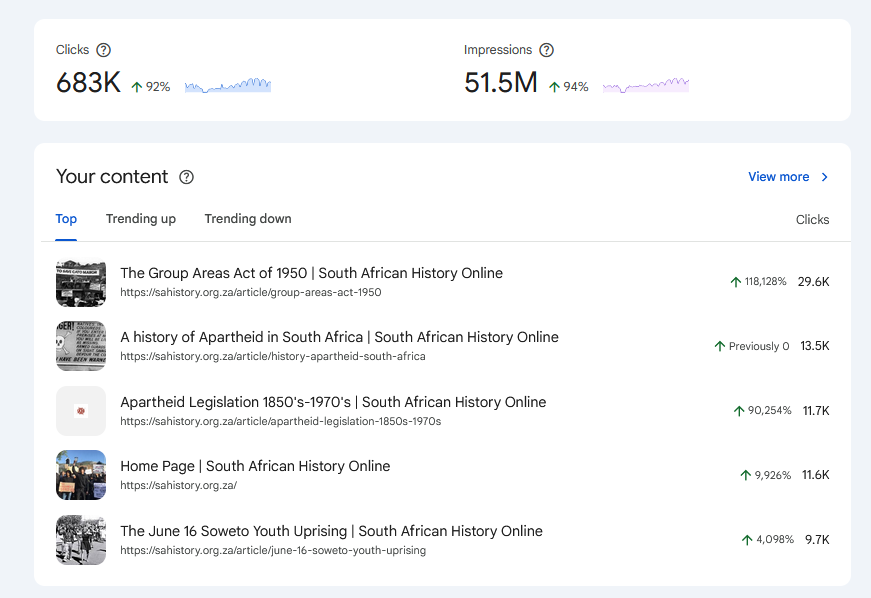Look, most people finish work and that's it. Me? I close my laptop at Novicell here in Aarhus and open it again for SAHO after spending a good time with my family. Been doing this for a good few months in order to catch up on technical debt accrued over the years and on upgrades done while I had disconnected from the project.
The Cape Town connection
I lived in Cape Town for 12 years. Not as a tourist - proper lived there. The parties, the nature, Mitchells Plain, the trains, the taxi ranks, the girls, everything. Shot thousands of documentary photographs, curated exhibitions and met people I will always consider family. Got published in National Geographic and The Economist. But that's not what this is about.
What got me was the stories. Every corner had a particular South African story, and here's the thing - it shares a tie to my own Danish history through slavery. Denmark, for all its social democracy and good causes, has its own slavery past. I don't carry guilt - I carry responsibility. I can actively be anti-racist, tell a people's history, make sure information flows freely from the perspective of those who lived it, not those who wrote the official version.
A people's history. That's what our CEO Omar Badsha always said until it became SAHO's official slogan. History from the majority's perspective - the element of socialism that means we are because of others. That's Ubuntu right there. The same core meaning.
And SAHO? They've been collecting these stories, archive items and research for 25 years. No ads. Never had them, never will.
What we're actually doing
Phoenix and I took on the Drupal 8 to 11 migration. Sounds boring? It's not when you realize we lost dates on 3500+ This Day In History articles. That's thousands of stories that need fixing. Real South African history that matters to real people.
The stats don't lie - 683K clicks, 51.5M impressions, 92% growth. We went from a site that got traffic but no engagement to one where people actually interact. The Group Areas Act page alone gets 29.6K clicks. The Apartheid Legislation pages - 13.5K and 11.7K. People want this information.

The technical bits (for those who care)
Yeah, it's database optimisation and CMS migration. But here's what we actually inherited - the project wasn't even using Composer. Manual dependency management and Filezilla deployments. I'm not joking.
We lifted this whole thing into a proper DevOps setup. GitHub workflows, new infrastructure, Apache Solr for search, Redis for caching, latest PHP. From cowboy coding to actual modern development.
But every query I optimize means faster access to history. Every bug I fix means someone finds their grandfather's story, understands their neighborhood's past, connects with their country's journey.
The dates thing bugs me. We know there are thousands more articles waiting to be properly dated and catalogued. It's not just technical debt but also the proper insight to the data that matters.
Why evenings in Denmark matter to South Africa
I could be watching Netflix. Instead, I'm fixing code for a project 10,000km away. Why? Because I walked those streets. I know what it means when a kid in Khayelitsha can read about their history on their phone. When a researcher in Jo'burg doesn't hit a paywall. When someone googles their township and finds actual history, not just crime stats.
Phoenix keeps me honest - I ask her opinion like 5 times minimum on everything. Sorry Phoenix! But her feedback helped me transform this Drupal 8 site into something that actually works and on latest Drupal version too. The modern style, the user engagement - that's her influence right there.
Here's the thing
SAHO needs help. Not just money (though yes, we're working on funding solutions that don't involve selling out). We need people. Editorial team needs reigniting. Admin team needs support.
But also - we need YOU. Got opinions? Found a typo? Want to add something? It's all on GitHub: https://github.com/South-African-History-Online/sahistory-web/issues/new/choose
Open a profile. Tell us what sucks. Fix what's broken. Add what's missing. This isn't some closed academic project - it's open source history.
The South African part
South Africa is unique. I'm not South African, but I felt it every day I was there. The way people navigate their shared past, the complexity, the resilience. That vision of unity despite everything - it's real and it's worth preserving digitally.
Every evening I spend debugging is an evening ensuring those stories survive. The June 16 Soweto Youth Uprising page that gets 9.7K clicks? That's kids learning their history. The apartheid legislation pages? That's people understanding how we got here.
So what
I'm a Jutland developer who fell in love with South African stories. Now I make sure those stories stay online, stay free, stay accessible. No corporate BS, no paywalls, just history available to anyone with an internet connection.
Want to help? Jump on GitHub. Can't code? Report bugs, suggest edits, tell us what's missing. This is bigger than my evening coding sessions. It's about keeping 25 years of collected history alive and growing.
South Africa taught me that technology should serve people's need to remember. So that's what I do. Every evening. One bug fix, one optimization, one feature at a time.
Still no ads. And it will stay that way.
Jump in: https://github.com/South-African-History-Online/sahistory-web/issues/new/choose
Visit SAHO: sahistory.org.za
